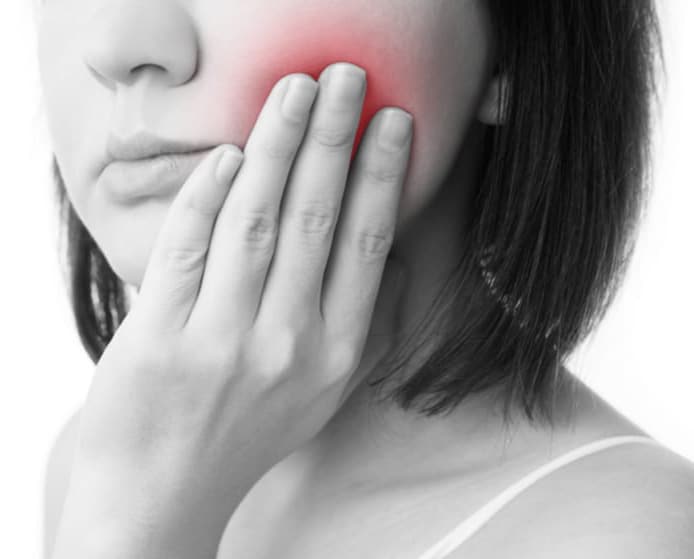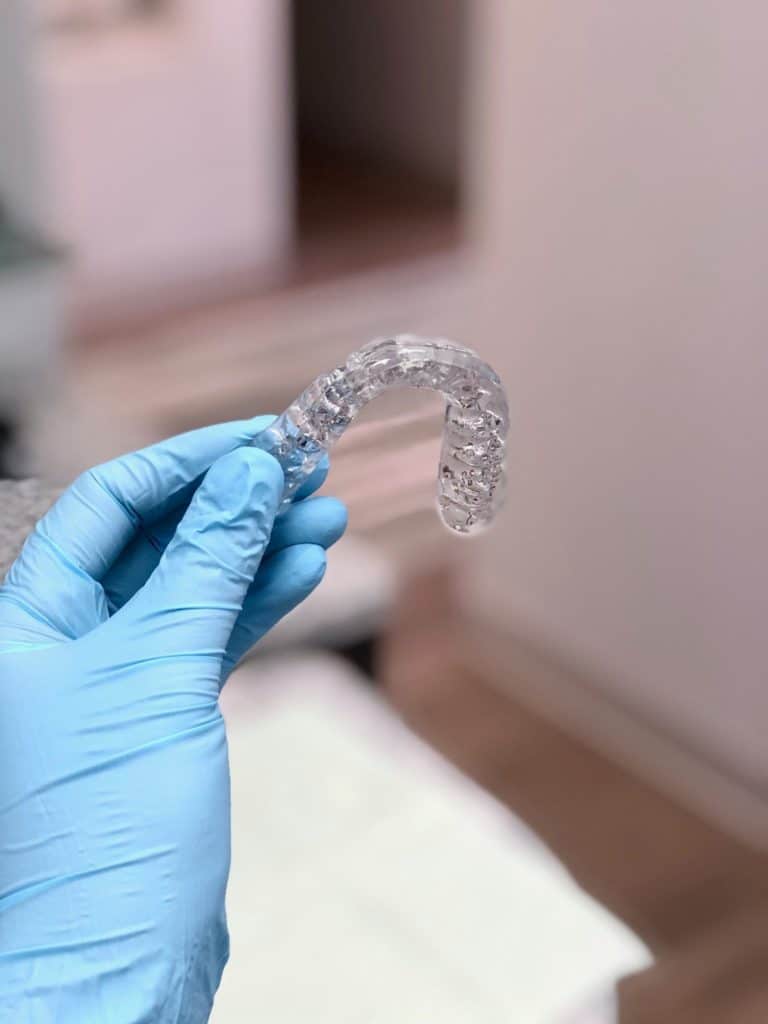Occlusal splints and Night guards
What is TMD/TMJ?
TMJ and TMD are often used interchangeably to describe disorders of the jaw joint and surrounding musculature. TMJ is short for temporomandibular joint and refers to the anatomic jaw joint. TMD is short for temporomandibular disorder and is the correct term that refers to the pain and disfunction of the joint. TMD is a broad term describing pain or tenderness of the joint and associated muscles that control jaw movement.
Signs and Symptoms of TMD include:
- Pain of the jaw joint (TMJ)
- Pain of the muscles surrounding the TMJ
- Referred pain to the face, eyes, neck, teeth
- Headaches and neck aches
- Clicking and popping sounds when opening and closing the mouth
- Asymmetrical or limited opening of the mouth
- Fractured teeth and restorations
- Worn enamel, possibly with exposure of dentin
- Jaw locks open or locks closed
Causes of TMD:
- Clenching or grinding of the teeth
- Sleep apnea
- Trauma to the jaw
- Periods of prolonged opening
- Arthritis
- Misaligned teeth and improper bite

Occlusal splints and Night Guards can help relieve your Tmj pain and minimize the wear on your teeth
The first line treatment for TMD is an occlusal splint or night guard. An occlusal splint is a prescription-only, custom-made, hard acrylic appliance that not only fits your teeth precisely, but also fits and modifies your bite to reduce the stress placed on the TMJ’s. The splint is typically worn at nighttime only, and also protects your teeth from clenching and grinding. Most people experience relief from an occlusal splint or night guard. Many patients report a better night’s sleep and waking up feeling refreshed. If the guard does not relieve the TMD pain, further evaluation and treatment may be necessary.
It is important to understand the differences between a store-bought or mail-order DIY night guard versus a custom made occlusal splint or night guard from your dentist. The products available over-the -counter do not take into account the proper position and bite of your teeth, and do little more than separate the teeth with a layer of plastic. In fact, these guards can actually trigger the muscles around the TMJ to activate and actually make existing TMD worse. They can also cause permanent changes to your bite and alignment of the teeth. Only a professionally fabricated occlusal splint or night guard will give you the full benefits of TMD pain relief.
Other treatment options for TMD include:
2. Botox therapy
3. Physical therapy and massage
4. Orthodontics
5. Orthognathic (jaw) surgery
6. Reconstruction of the teeth to idealize bite relationship
Contact River Oaks Dental in Jacksonville, FL for more information about TMJ/ TMD treatments.

